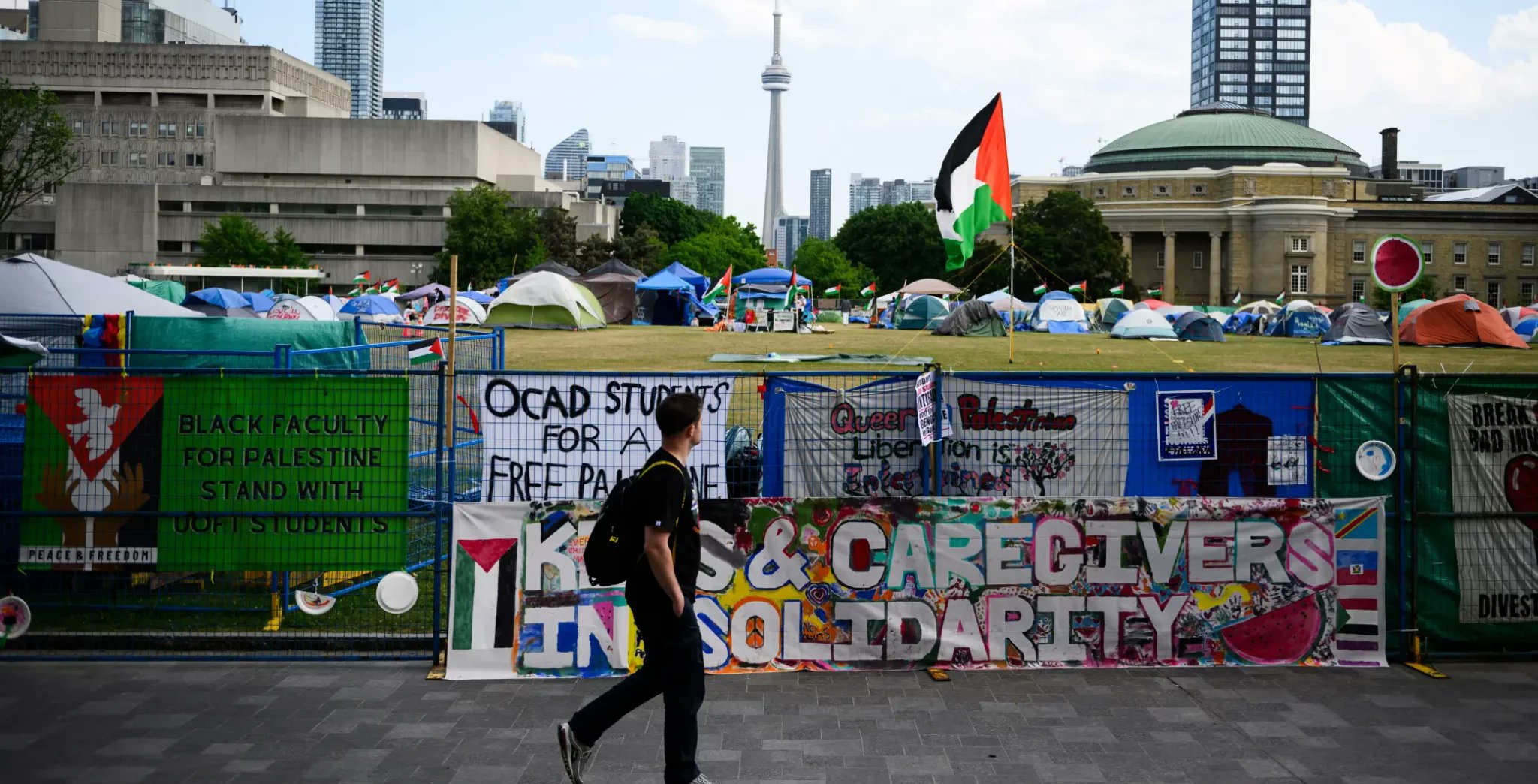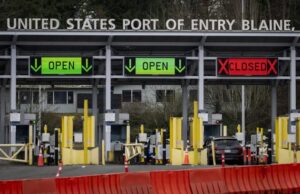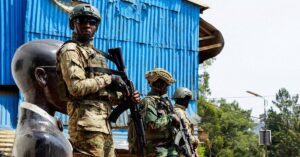
An Ontario court is set to hear the University of Toronto’s application for an injunction to clear a pro-Palestinian protest encampment today and tomorrow.
The university turned to the court late last month after protesters ignored its deadline to dismantle the encampment in the area known as King’s College Circle.
The encampment was set up on May 2 and participants say they won’t leave until the school agrees to disclose investments in companies profiting from Israel’s offensive in Gaza and cut ties with Israeli academic institutions.
The school is asking the court to authorize police action to remove protesters who refuse to leave, arguing the encampment is causing irreparable harm to the institution.
It is also seeking to prevent protesters from blocking access to university property or setting up fences, tents or other structures on campus.
In their court filings, the protesters say the school’s claims of irreparable harm are “grounded in troubling mischaracterizations” of the encampment as violent and antisemitic.
While the university has included examples of antisemitic incidents in its filings, the students say the evidence regarding these incidents is hearsay and cannot be put to the test, nor has the school proven any connection to the encampment or its participants.
They also argue that clearing the encampment would violate their protected rights to free expression and peaceful assembly.
“Inconveniences to the university and discomfort by those who disagree do not outweigh these vital rights,” they argue in the documents.
A number of groups — including the Canadian Association of University Teachers, the Canadian Federation of Students-Ontario and a number of Jewish advocacy groups — have been granted intervener status in the case.
The university had sought the injunction on an urgent basis because the encampment is near Convocation Hall, where more than 30 graduation ceremonies were scheduled to take place from early this month to Friday. The hearings will take place after most of the ceremonies have happened, with no major disruptions.
Outside the court process, the two sides have been meeting to negotiate a possible agreement, but the talks appeared to reach an impasse last week when the university said the protesters had rejected its latest offer. The university said it was open to continuing the negotiations “when there are productive reasons for doing so.”
Representatives of the encampment, meanwhile, said the university had not been negotiating in good faith, noting the school’s president had yet to participate or meet any of the protesters.







